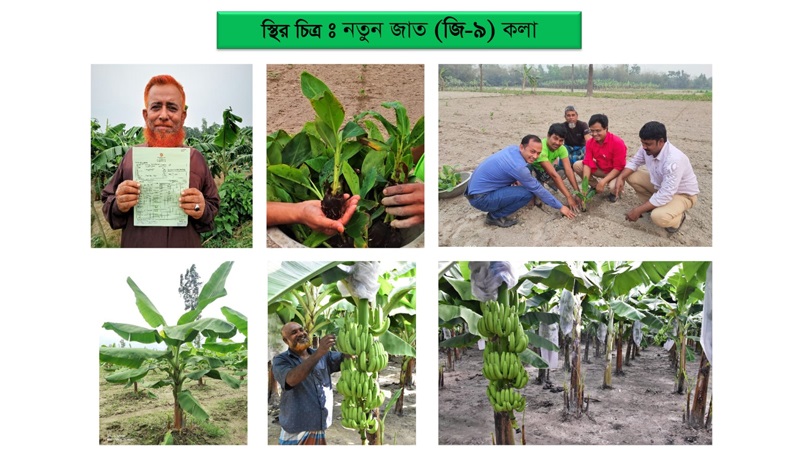In Bogura’s Shibganj and Jamalgonj in Joypurhat, the World Bank and Palli Karma-Sahayak Foundation (PKSF) are implementing a sub-project titled ‘Sustainable Enterprise Project (SEP)’ under economic assistance. Under this project, a sub-project titled ‘Safe Banana Cultivation through Environmentally Friendly Practices’ is being implemented by TMSS within the scope of the project. As part of this initiative, entrepreneurs are being trained in skills, environmental and business development, technical assistance, and soil testing to establish plots for banana exhibition and cultivate new varieties of tissue-cultured banana (G-9) using organic fertilizer, which is more productive and nutrient-rich.
To manage waste and prevent soil, water, and air pollution in banana cultivation, waste collection points have been established at the community and market levels. This allows banana growers to deposit their discarded banana plants at these points. Once the waste is converted into organic fertilizer, farmers can use it in their fields.
In the Shibganj region, abandoned banana plants are no longer discarded. Instead, they are used to make fiber (bast) for various handicrafts (table mats, pen stands, gas covers) and are planned to be marketed locally and exported abroad. The sub-project has created new employment opportunities in the local area. The SEP (Banana Cultivation) sub-project is recognized as a Zero Waste project.
Project Manager, agricultural expert Md. Istiaq Islam, stated, “Within the project area, 45 farmers have come under the coverage of G-9 banana cultivation. With the assistance of project staff, producing a significant amount of safe bananas at a lower cost, farmers can potentially earn more profits by entering higher markets. This is our belief.”

